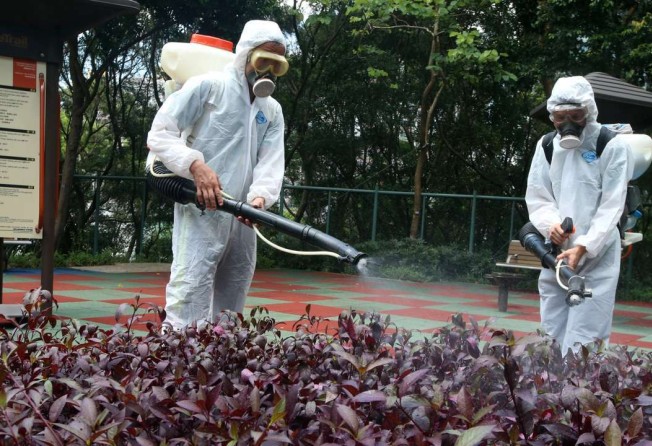Hong Kong must remain vigilant over the Zika virus
The public should be reassured by the response of health and environmental officials to the city’s first confirmed case and heed their advice.

The risk of life-threatening infection may scare people. But few diseases can instil the abiding fear of a calamitous risk to the health of an unborn child transmitted through the mother. We are talking in this case about infection with the mosquito-borne Zika virus, and the risk of of microencephaly, or underdeveloped brain and small head. Thankfully, there is no suggestion of such a fear in the city’s first case of Zika infection, an expatriate woman of 38 bitten by mosquitoes when travelling in the Caribbean this month. But potentially it could be unleashed if the woman is bitten by a mosquito that can spread the virus through its bite and infect a mother-to-be or her partner. That is why, after the woman’s samples tested positive to Zika on Thursday, the health authorities moved her into an isolation ward at United Christian Hospital in Kwun Tong until the risk has passed.
There is no reason for panic because the virus has suddenly turned up in Hong Kong after being acquired overseas. It is surprising it had not done so before now. After a rapid flare-up in Latin America that threatened the Rio Olympic Games and prompted the World Health Organisation to declare a public health emergency, the UN body said months ago that people infected with it had travelled through Hong Kong.
The Hong Kong woman, who lives in Lohas Park at Tseung Kwan O and works at the International Finance Centre in Central, is probably not the first local victim. But there is reason to take her case very seriously. It is a cautionary example of the need to be vigilant against, and after, mosquito bites, in the interests of public as well as personal health. She developed deceptively mild but typical Zika symptoms, such as red eyes and joint pain, last Saturday, just before returning to Hong Kong, and consulted a medical centre in Central on Tuesday without being deemed ill enough for hospital admission.
The public should be reassured by the response of health and environmental officials – and heed their advice. Seasonal mosquito activity far exceeds alert levels in widely dispersed areas, and anti-mosquito operations are being stepped up in areas the woman is known to have visited, the main target being Aedes albopictus, a relative of the South American transmitter. Most Zika carriers may never show symptoms, reinforcing the need to remain vigilant against mosquitoes and take effective control measures. People with symptoms or worries should not hesitate to visit a doctor, public clinic or a voluntary screening programme run by the University of Hong Kong.